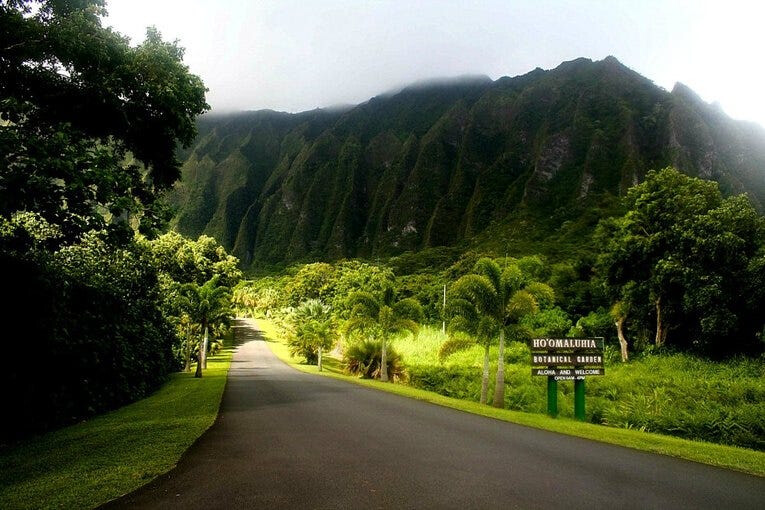
OAHU, HAWAII - Beneath the verdant canopy of Oahu's forests, a seemingly idyllic scene unfolds. The air is thick with the exotic fragrances of pepper, cinnamon, and guava, while the melodies of non-native birds fill the air. For ecologist Corey Tarwater of the University of Wyoming, who has been studying this landscape since 2014, the beauty is undeniable. Yet, a closer look reveals a startling truth: these lush woods bear little resemblance to the native ecosystem that once thrived here.
"You wouldn't know it unless you studied it," Tarwater explains, "but if you walk through any forest around Honolulu, you won't find a single native plant species." The lowland forests of Oahu have been almost entirely transformed, the original flora and fauna that evolved over millennia replaced by a global mix of introduced species. From Brazilian peppertrees to Indian cinnamon and Australian brambles, the plant life is largely foreign. Even the charming birdsong comes from species brought from other corners of the world.
This ecological shift, driven by centuries of human activity – from clearing land for agriculture to introducing invasive predators and disease – has led to the emergence of what scientists call "novel" or "neoecosystems." These are autonomous wild ecosystems that have been significantly altered by human actions, featuring unprecedented combinations of species.
"If all humans disappeared from Earth," notes Professor Jens-Christian Svenning of Aarhus University, "Hawaii would embark on a completely different evolutionary and ecological trajectory." The very landscape that once served as a symbol of pristine wilderness in films like 'Jurassic Park' and 'King Kong' has been fundamentally reshaped by human hands.
Ecologist Jeff Bizen-Bugoni of the Federal University of Pelotas in Brazil, who collaborated with Tarwater on bird studies, vividly recalls his initial disappointment upon arriving in 2017. Hoping to spot the vibrant Hawaiian honeycreepers, he was instead greeted by flocks of red-whiskered bulbuls, birds native to Asia. He then observed one of these bulbuls feeding on a guava, a fruit originating from South America. "That moment," Bizen-Bugoni reflects, "encapsulated the essence of what's happening in Hawaii: a South American plant being eaten by an Asian bird on a remote Pacific island."
What's remarkable is that despite their haphazard origins, these new ecosystems are beginning to show signs of structure and organization. A 2019 study by Tarwater and Bizen-Bugoni revealed that the introduced bird species are taking on ecological roles, such as seed dispersal, that were once filled by now-extinct native birds. Surprisingly, the patterns of interaction within these novel ecosystems are showing similarities to those found in ancient, co-evolved ecosystems like the Amazon rainforest.
The case of Oahu is not unique. Across the globe, human activities are giving rise to these novel ecosystems. From the Great Lakes, where introduced fish have reshaped food webs, to the unique plant communities thriving on European mine waste heaps, and even the urban environments where alien species flourish alongside human infrastructure, the planet's ecological tapestry is being rewoven in unexpected ways.
These unintended ecological creations raise profound questions about the future of nature. As the possibility of returning to a pre-human state fades, scientists are grappling with how to understand and potentially manage these new environments. The forests of Oahu, a testament to humanity's lasting impact, offer a crucial glimpse into the evolving relationship between humans and the natural world, and the challenges and opportunities that lie ahead in fostering sustainable coexistence in the ecosystems we have inadvertently created.
[Copyright (c) Global Economic Times. All Rights Reserved.]



























